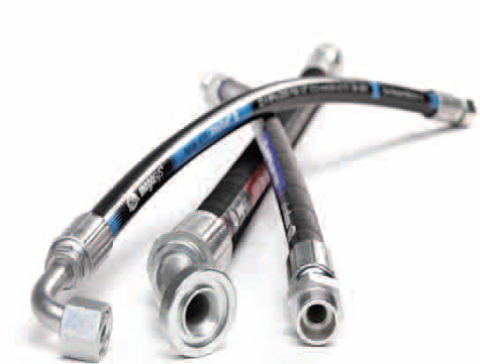With the increasing demand for high-pressure cement hoses in the oil and gas industry, the design and manufacturing of API 7K series high-pressure cement hoses have gone through many innovations. These hoses must be able to maintain excellent performance in harsh environments. To ensure that its performance reaches the highest standards, API 7K series high-pressure cement hoses undergo a series of performance tests in extreme environments. This article will detail these tests and their importance in ensuring product reliability and safety, and explore how to extend their service life through effective maintenance and management strategies.
1. Challenges of traditional connection methods
Traditional API 7K series high-pressure cement hose usually adopts threaded connection or flange connection. Although these connection methods can meet the usage needs to a certain extent, there are some challenges:
Cumbersome operation: Threaded connection or flange connection requires manual operation, and the installation and removal process is cumbersome and time-consuming.
Potential safety hazards: In high-pressure environments, traditional connection methods may be at risk of leakage or falling off, posing hidden dangers to work safety.
2. New quick connection technology
In order to overcome the challenges of traditional connection methods, new quick connection technologies emerged. This technology uses advanced design principles to improve connection reliability and efficiency:
Quick connection: The new quick connection technology adopts a simple and fast operation method, which can quickly complete the connection and disassembly, greatly shortening the operation time.
High reliability: The new connection method adopts a multi-sealing design to ensure a stable connection even in high-pressure environments, reducing the risk of leakage and falling off.
3. Exploration of intelligent connection systems
With the continuous advancement of technology, intelligent connection systems have become a new trend for API 7K series high-pressure cement hose joints:
Remote monitoring: By integrating sensors and remote monitoring systems, the connection status can be monitored in real time, abnormal situations can be discovered in a timely manner and corresponding measures can be taken.
Automatic control: Combined with automatic control technology, the connection process can be automated, reducing the possibility of manual intervention and operating errors.
Data analysis and optimization: By collecting and analyzing data from the connection system, the connection design can be optimized and the performance and reliability of the connection can be improved.
In summary, the evolution of connection technology has brought new opportunities and challenges to API 7K series high-pressure cement hoses. New quick connection technology and intelligent connection systems not only improve the efficiency and reliability of connections, but also provide better protection for operational safety. Users should cooperate with reputable manufacturers and choose appropriate products based on specific application needs to ensure the best use results and cost performance. By continuing to pay attention to industry development trends and technological innovations, users can better manage and maintain API 7K series high-pressure cement hoses, extend their service life, and reduce operating costs.

